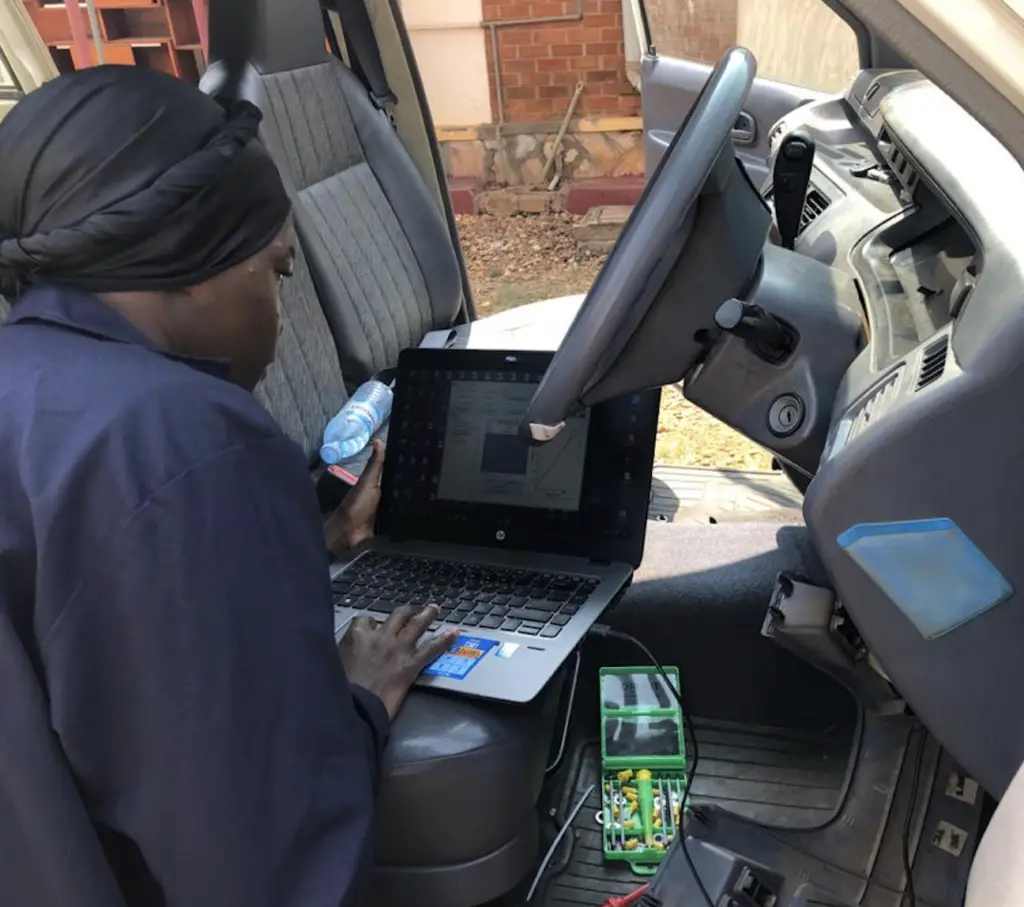- An estimated 90 percent of African women do not use the internet, UNICEF reveals.
- UNICEF report says millions of girls are less prepared for the digital revolution in Africa.
- Governments in Africa urged to increase women’s safety online
While the digital revolution is believed to be reducing gender inequality globally, in Africa, the internet is largely a preserve of men. According to UNICEF, up to 90 percent of African women do not use the internet yet their male peers are twice as likely to be online.
Titled “Bridging the Digital Divide: Challenges and an Urgent Call for Action for Equitable Digital Skills Development” the survey warns that girls in Africa “are being left behind in the digital world and are the least likely to have the opportunities to develop the skills needed for 21st-century learning and employment.”
Girls less likely than boys to access internet
Released on the International Day of Girls in ICT, April 27, the report said the challenge runs deeper than a lack of access to internet. “Educational and family environments play a critical role in the gender digital divide,” UNICEF said.
“Even within the same home, girls are far less likely than boys to access and make full use of the internet and digital technologies,” says the report.
The analysis was conducted across 41 developing countries and territories in the world. It reveal that households in these countries are much more likely to provide mobile phones for boys than girls.
For this reason, UNICEF is calling on governments and partners to teach digital skills equally to girls and boys. These learning programmes should be extended to those in and out of school. UNICEF is also calling for the protection of girls’ safety online, and to promote their access to peer learning, mentoring, internships, and job access in the digital world.
“Closing the digital divide between girls and boys is about more than just having access to the internet and technology. It’s about empowering girls to become innovators, creators, and leaders,” explains UNICEF Director of Education Robert Jenkins.
“If we want to tackle gender gaps in the labour market, especially in Science, Technology, Engineering, and Math fields, we must start now by helping young people, especially girls, gain digital skills,” she urged.
Digital skills needed to be competitive in 21st century
UNICEF says the issue is much more complex than access to the internet, even when girls get access. It notes that there is a need to increase girls’ ability to make use of the information that they access.
Having access to the internet does not equate to the ability to use the Internet or digital services. “While advancing access to the internet is important, it is insufficient for digital skills training,” the survey points out.
Girls are said to be less likely to have the opportunities to develop the digital skills. Unfortunately, digital skills are needed for one to be competitive in the 21st century. “On average, across 32 countries and territories, girls are 35 percent less likely than their male peers to have digital skills, including simple activities like copying or pasting files or folders, sending emails, or transferring files,” reveals the report.
By providing early exposure and access to digital technology, girls will be equipped to face the new world. For this to happen, Africa is encouraged to address what UNICEF says are harmful gender stereotypes within families. UNICEF is also calling on authorities to combat online violence targeting girls.
Policies to protect girls’ safety online
Through the report, UNICEF calls on African governments and development partners to “close the gender divide and ensure that girls have the opportunities to succeed in a digital world.”
The report adds that there should be equal training of digital skills for both girls and boys. If adopted, the training should be both in and out of school and to include community programs. Governments are also advised to develop policies and regulations to protect girls’ safety online and to create virtual safe spaces.
Read also: Airtel Africa and UNICEF in a US$57mn partnership to scale-up digital learning
From doing business to learning, the Covid-19 pandemic forced a global shift from the physical world a virtual one. However, in many African countries, going online exposed a huge gender gap in digital awareness and capacity.
A report by Asante Africa shows pandemic-induced digital shift exposed the continent’s inadequacy of equipment. The period also demonstrated Africa’s poor connectivity and that girls are less equipped and than their male counterparts. The organization says the digital shift caused academic blackout for students and more so for girls.
Men have more ownership of digital devices
“While schools in Africa struggle to reopen and remain open, one thing remains clear: given today’s digital generation, schools and school children in rural Africa must have better digital access and digital training to keep pace with the knowledge and skills development of their industrialized peers,” the organization cautions.
Additionally, “If students in rural East Africa/Africa are to become viable members of this digital generation, productive participants in the economy of the 21st century, they must be given the tools with which to learn and work within that economy.”
African countries only have a fraction of the digital devices that the developed world has. This disparity provides a challenge if girls in Africa are to learning digital skills to compete globally.
Across the continent, men have more ownership of digital devices. As a result, they also enjoy more connectivity to the internet. One of the reasons why this plays out is because of financial ability to buy data. Since men have more financial power, they have more access to the internet than women. The disparity gets worse for young girls who do not have any viable means of generating income.
Africa will benefit from greater connectivity
A 2019 Afrobarometer report shows that, in Kenya for example, women lagged behind men in “regular internet usage,” 28 percent to 39 percent; in Tanzania, 13 percent to 21 percent; and in Uganda, 10 percent to 17 percent.
“While all schoolchildren in Africa will benefit from greater connectivity, among those schoolchildren girls have the most to gain…educated girls have career opportunities, the ability to make financial decisions, the choice to determine when to begin a family and of what size, greater political input and the prospect of shaping cultural norms,” notes Afrobarometer.











